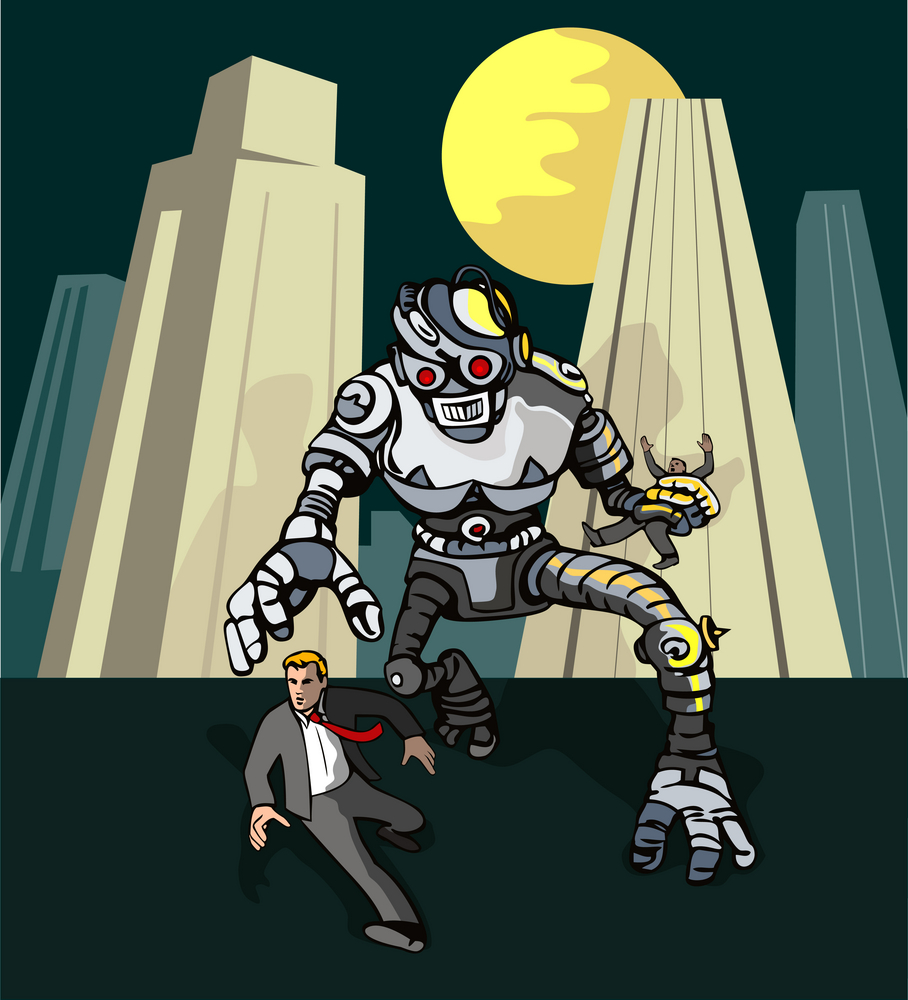

Far from being happy at letting the boring parts of our lives be handled by machines and computer programs, British consumers are increasingly worried about the pace of which technology is beginning to take over their lives, particularly concerning the “Internet of Things” (IoT) a new study has found.
A survey of more than 1,600 consumer across the UK found that more than half (58 percent) resent the idea that computers seem to run their lives “wherever I go” and 70 percent suggest that with the marketplace flooded by inter-connected devices, it’s too easy for things to go wrong.
The survey also showed that some Brits are hankering after a return to ‘simple’ technology, with 54 percent saying they wished that their phone only made calls.
The majority of consumers also think that more advanced internet-based products such as smart fridges, which are able to re-order food, or cookers reminding owners about recipes, weren’t particularly necessary.
However the respondents were not all techno-phobes, with many able to recognise the benefits that IoT-connected devices could bring.
Energy and health were the most acceptable areas for connected technology, with 48 percent welcoming the idea that smart meters can save energy and money, and 40 percent saying that health monitors which issue warnings about impending illness are a good idea.
Many respondents admitted that fears around the security of the IoT were the main reasons why they were unlikely to trust the technology, with over half (56 percent) citing the “Big Brother” effect of their appliances keeping watch on their activities. This was also a worry in the workplace, where more than a third (36 percent) thought that emplouyers could use such devices to monitor workers’ actions.
“It is clear that consumers are struggling with a desire to use connected devices as a route towards an easier life, but they remain wary of the rise of the machine,” said Wil Rockall, a director in KPMG’s Cyber Security practice. “They still support innovation, recognising that in the right environment having the latest technology is key – nearly 60% acknowledge that technology makes us more effective at our job.”
Despite the cynicism, the IoT could be set to drive technological innovation and development more than any ecosystem before it. Research by IDC and Ericsson recently predict that the total number of networked devices around the world will hit 50 billion by 2020.
What do you know about the Internet of Things? Take our quiz!
Apple fined 150m euros over App Tracking Transparency feature that it says abuses Apple's market…
OpenAI to release customisable open-weight model in coming months as it faces pressure from open-source…
Samsung's Bespoke AI-powered fridge monitors food to create shopping lists, displays TikTok videos, locates misplaced…
Huawei sees 38 percent jump in consumer revenues as its smartphone comeback continues to gather…
In world-first, China approves commercial flights for EHang autonomous passenger drone, paving way for imminent…
Microsoft closes down IoT and AI lab it operated in Shanghai tech district in latest…
View Comments
Unfortunately a lot of the IoT so far actually makes life harder and most of it is unnecessary.
Yes smart devices, have a place, but most do not need to be connected to the internet, in fact they shouldn't be as this just increase the exposure for attack and misuse.
The IoT is the new TV remote, it has a place but its way too complicated for most!